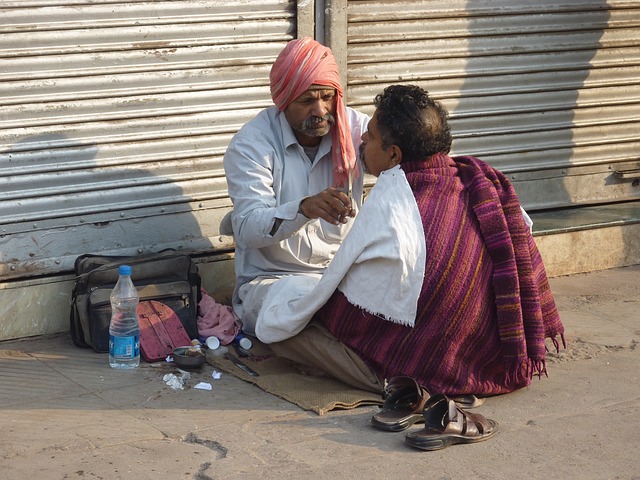Moving Battle of Bihar to Dadri
With not much time left in the Bihar Assembly Poles, the political strata are trying every weapon in their arsenal to make the most of the time left. Every single issue, every single incident is being painted in the political colors. The recent case of Dadri lynching served as a perfect opportunity for power hungry politicians to once again divide the society in the name of religion and their purpose is readily served by TRP hungry media. The big question arises here is that for how long will we be fooled by the negative journalism of political obsequious media?
Dadri Lynching
The night of 28 September, 2015 awaited doom for Mohammed Akhlaq Saifi and his family, natives of Bisara village near Dadri, Uttar Pradesh, when a mob instigated by local temple’s announcement that Akhlaq and his family had consumed beef on the eve of Eid attacked the family, where Akhlaq was lynched publicly while his son Danish, 22, was beaten brutally. A riot like situation gripped the village on the next day when the relatives of victim’s family were barred from attending his funeral. It was later revealed that the meat found in the family’s refrigerator was mutton, not beef.
Political Angle
With the Bihar elections about to kick start, it served as a perfect opportunity for the politicians to polarize the society in the name of religion and gain political advantage. Many local as well as national level leaders continued to visit the victim’s kin despite constant protest from locals who lamented that most leaders including Rahul Gandhi, Arvind Kejriwal and AIMIM Chief Asaduddin Owaisi communalised the incident by marginalizing the other side of story.
Media again played a role here and aggressively covered the politically directed speeches of the leaders. While Asaduddin Owaisi termed it as a pre planned murder, Samajwadi Party MP Azam Khan seeked UN’s intervention to look over the miseries of Indian minorities through an open letter (and ironically he belongs from the ruling party of the state).
But the maximum coverage was reserved for PM Narendra Modi’s baffling silence over the incident which made even his staunchest supporters question his credibility. His silence might have been a cause of worry for his supporters but it gave the Grand Alliance of Bihar (RJD+JDU+INC) an opportunity to propel him as a communal personality.
Media’s Role
Popular media vehemently demonized the face of oppressive majority but failed to highlight the helping hands which came for the rescue of victim’s family at the time of attack. Those helping hands were of their neighbours, who, ironically belonged from the same ‘oppressive majority’ which the media labelled as criminalized and politically motivated. Manoj Sisodia, Akhlaq’s Hindu neighbour, was the last person he called for help and Sisodia responded by calling up the police and ran all the way to Akhlaq’s house. Police arrived within 15 minutes but it was too late by then.
The locals of Bisara also lambasted media for selective coverage and held them responsible for the brewing intolerance in their area.
Intolerance in India
Post Dadri incident, various media platforms have aggressively sold the term ‘Intolerance’, something which is their own giving. It does not sound coincidental that a single issue was highlighted in order to propagate that intolerance is on the rise in the country just before the elections of a geographically and strategically important state are about to begin. Politics in Bihar has always been played on the grounds of caste and religion and it is impervious to say that the incident did create some impact on the polls.
Conclusion
Although the last decade has saw a significant change in the political mindset of people but still such incidents prove successful in provoking the religious sentiments of people. They understand their political motives behind the sympathy shown to the victims but still get moved by their hate speeches. It’s high time we should rise above the stereotypes of caste and religion and put an end to the politically motivated hatred in the society.





